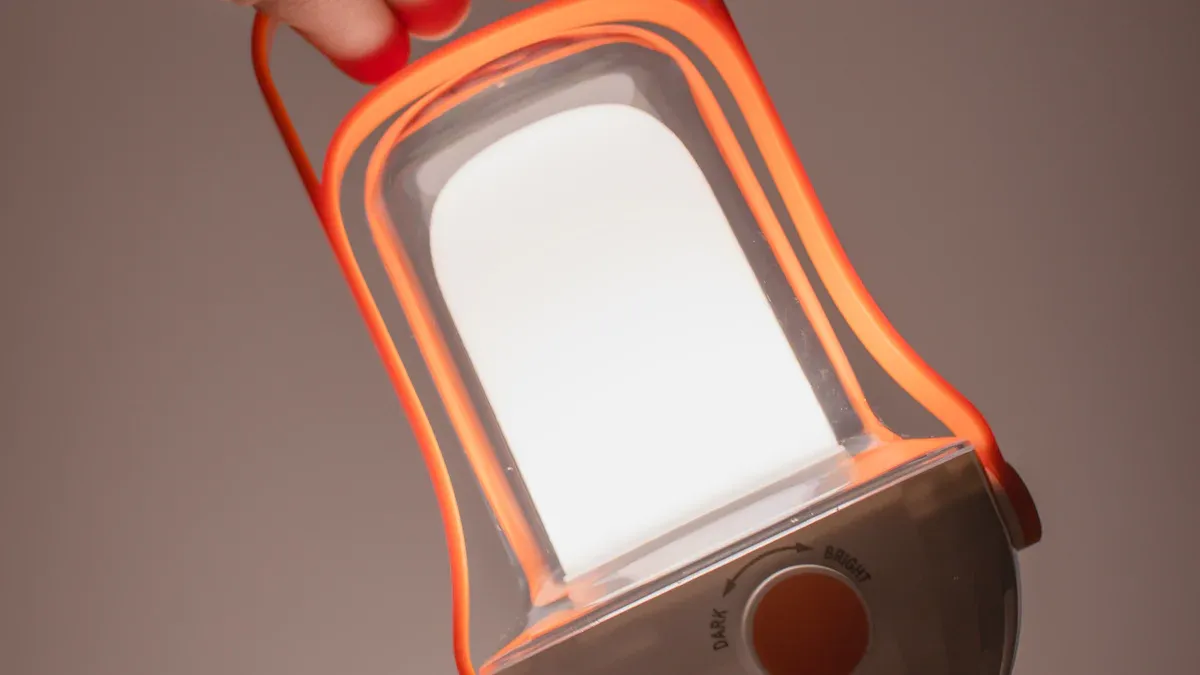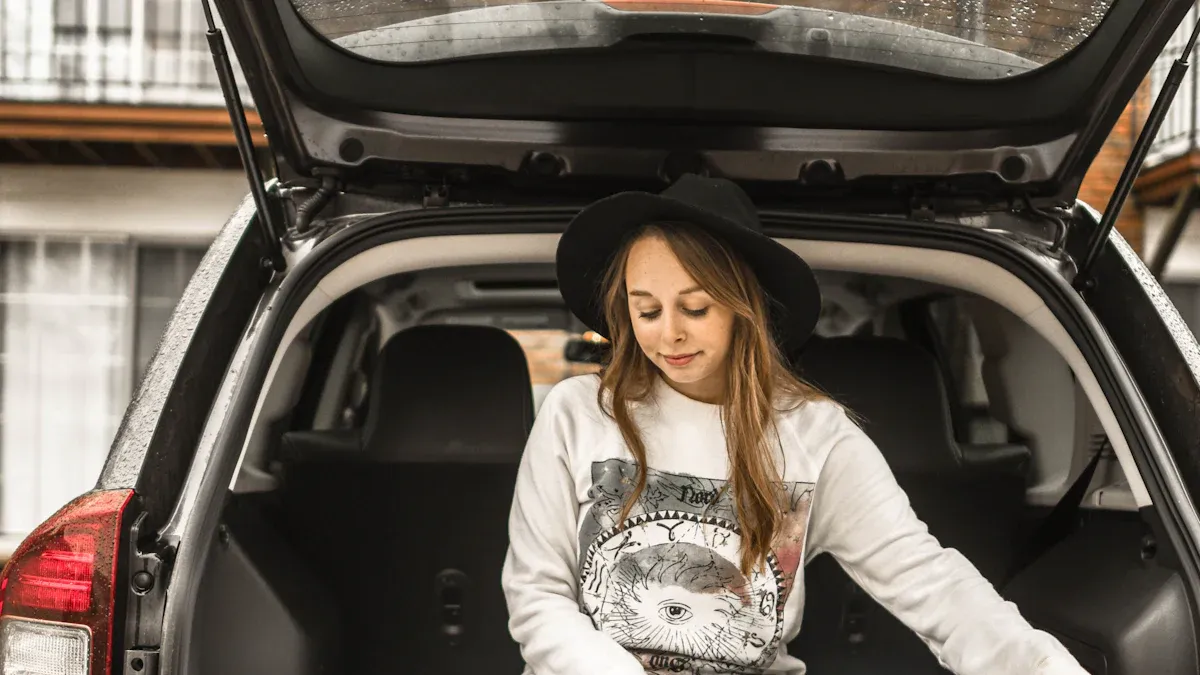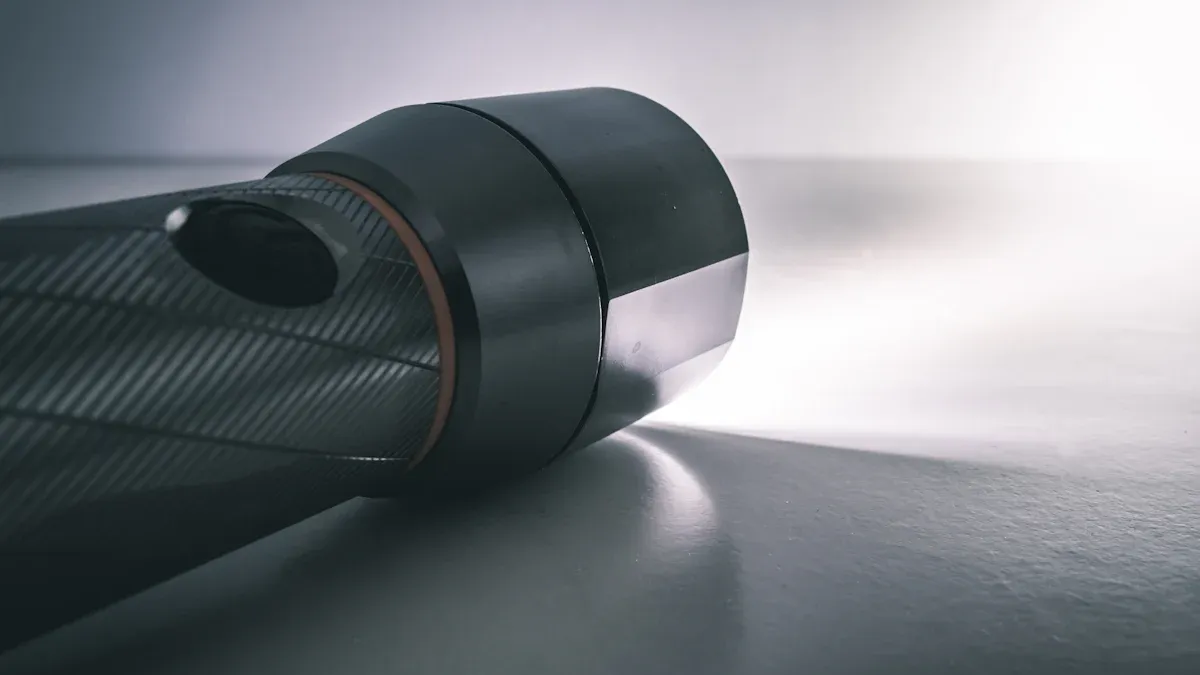Why Flashlights Are Essential for Emergency Preparedness Kits

Imagine a sudden power outage or being stranded in the dark. You need immediate access to light to stay safe and navigate your surroundings. A flashlight in an emergency preparedness kit becomes your lifeline. It’s essential for emergency preparedness, offering a reliable light source that ensures safety and helps you handle emergencies with confidence.
Key Takeaways
A flashlight is important for safety when the power goes out. It gives quick light, helping you move safely and avoid harm.
Pick a strong, weatherproof flashlight with lasting battery power. This makes sure it works well in tough times and emergencies.
Check your flashlight often by testing it and changing batteries. Keep it in an easy-to-reach place so it's ready to use.
Immediate Benefits of a Flashlight in an Emergency Kit

Providing Light During Power Outages
When the power goes out, everything around you can feel uncertain and chaotic. A flashlight in an emergency kit becomes your go-to tool for restoring order. It provides instant light, helping you move around safely without bumping into furniture or tripping over obstacles. Whether you're searching for supplies, checking on loved ones, or simply trying to stay calm, having a flashlight ensures you’re not left in the dark.
Unlike candles or lanterns, flashlights are portable and easy to use. You can carry them from room to room or even outside if needed. Their focused beam gives you better control over where you need light the most. This makes them an essential part of your emergency preparedness plan, especially during unexpected power outages.
Enhancing Safety in Low-Visibility Conditions
Low-visibility conditions can occur during storms, disasters, or nighttime emergencies. Flashlights play a critical role in ensuring visibility and enhanced safety. They help you see clearly in dark or smoky environments, reducing the risk of accidents.
Flashlights allow rescuers to locate survivors quickly by cutting through darkness.
They help you signal your location, increasing your chances of being found.
Focused light from a flashlight is perfect for tasks like navigating debris or assessing injuries.
For rescue teams, flashlights are indispensable. They operate silently, allowing clear communication. Spotlights, in particular, are great for long-range searches. Whether you’re helping others or ensuring your own safety, the use of a flashlight can make all the difference.
Signaling for Help in Emergencies
In emergencies, signaling for help can save lives. A flashlight becomes your most reliable tool for attracting attention. Its bright beam cuts through darkness, making it visible from far away. Even in harsh weather like rain or snow, a durable flashlight won’t let you down.
To signal effectively, use three short flashes followed by a pause, then repeat. This rhythmic pattern stands out and grabs attention. Many flashlights also have strobe functions for sending SOS signals in Morse code. This involves three short flashes, three long flashes, and three short flashes again. These features make flashlights invaluable for communication when traditional methods fail.
Whether you’re stranded in a remote area or stuck in a disaster zone, a flashlight in an emergency kit ensures you can call for help when it matters most.
Key Features of an Emergency Flashlight
Durability and Weather Resistance
When choosing an emergency flashlight, durability for harsh conditions is a must. You need a flashlight that can handle tough environments without failing. Many high-quality flashlights are built with weather-resistant materials, ensuring they work even in water, dust, or extreme temperatures. Models made from sturdy materials like aluminum or titanium are especially reliable.
Look for flashlights with an IP68 rating. This means they’re highly resistant to water and dust, making them perfect for emergencies in harsh environments. Brands like Fenix design rugged flashlights that can withstand the elements while maintaining excellent performance. Whether it’s a storm or a disaster, a durable flashlight ensures you’re never left in the dark.
Long Battery Life and Backup Power Options
A flashlight with long battery life is essential during emergencies. You don’t want your light source to die when you need it most. Many flashlights now come with energy-efficient LED bulbs, which extend battery life significantly. Some models even offer backup power options, like rechargeable batteries or solar charging, so you’re always prepared.
Consider flashlights with multiple power modes. Low-power settings can conserve energy, while high-power modes provide maximum brightness when needed. This versatility ensures your flashlight lasts longer and adapts to different situations. A reliable flashlight with long-lasting power is a game-changer in emergencies.
Compact and Portable Design
Portability is key when adding a flashlight to your emergency kit. Compact flashlights fit easily into tight spaces, making them ideal for storage. Their lightweight design ensures you can carry them effortlessly, whether you’re on the move or staying put.
Some flashlights even feature foldable or collapsible designs, saving even more space without sacrificing performance. These features make it easy to keep your flashlight within reach at all times. A portable flashlight ensures you’re always ready to face the unexpected, no matter where you are.
Practical Applications of Flashlights in Emergency Preparedness

Navigating in the Dark or Unfamiliar Areas
When you’re in the dark, a flashlight becomes your best friend. It helps you find your way during nighttime evacuations, guiding you to exits and safe paths. Whether you’re dealing with a power outage or navigating dark spaces in an unfamiliar area, a flashlight ensures you can move safely.
Flashlights are also essential outdoors. If you’re hiking or camping, they reveal obstacles and hazards on treacherous trails. In wilderness areas, they illuminate paths and help you avoid natural dangers. For businesses, flashlights in emergency kits guide employees during blackouts, preventing accidents in dark environments. Their portability and brightness make them indispensable for survival in any emergency.
Assisting in First Aid and Rescue Efforts
Flashlights play a critical role in first aid and rescue situations. They help rescuers locate survivors in low-light conditions, cutting through darkness to enhance visibility. If you’re injured, a flashlight allows you to signal your location, increasing your chances of being found quickly.
Focused light is vital for assessing injuries, cleaning wounds, or applying bandages. Tactical flashlights even help identify bruises or bleeding in poorly lit environments. Hands-free options, like headlamps, let you focus on medical tasks without juggling tools. Whether you’re performing CPR or navigating debris, a flashlight ensures you can act effectively during emergencies.
Communicating and Signaling in Remote Locations
In remote areas, flashlights are powerful tools for communication. Rapid flashes catch attention better than steady beams. You can use the universal distress signal: three quick flashes, three slow flashes, and three quick flashes again. This pattern is easy to recognize and increases your chances of being spotted.
Maximize visibility by aiming your flashlight toward open areas. Brightness matters here, as a strong beam can reach rescuers from a distance. Many flashlights also have strobe functions for sending SOS signals. These features make flashlights essential for survival when traditional communication methods fail.
Tips for Maintaining and Using Flashlights in Emergency Kits
Selecting the Right Flashlight for Your Needs
Choosing the right flashlight for your emergency survival kit is crucial. Not all flashlights are created equal, so you’ll want to consider a few key factors:
Brightness and Beam Distance: Look for a flashlight with at least 200 lumens. For better visibility in emergencies, aim for 500 lumens or more. A strong beam distance is also important for signaling or scanning large areas.
Battery Type: Decide between disposable and rechargeable batteries. Lithium batteries are a great choice because they last longer and perform well in extreme temperatures. Make sure you have extras or a way to recharge them during emergencies.
A high-quality flashlight with these features ensures you’re prepared for any situation. It’s not just about having light—it’s about having the right light when you need it most.
Regular Maintenance and Battery Replacement
To keep your flashlight in top shape, regular maintenance is key. Start by testing it periodically to ensure it works properly. Replace the batteries before they run out, and always keep spares in your kit. Store batteries in a cool, dry place to extend their shelf life.
Don’t forget to clean your flashlight. Dust and grime can affect its performance over time. Wipe down the exterior and check the lens for dirt or scratches. A well-maintained flashlight will be ready to provide safety and visibility when disaster strikes.
Storing Flashlights for Easy Accessibility
Accessibility is everything during an emergency. Keep your flashlight in a designated spot where you can grab it quickly. Good places include desks, cabinets, or wall-mounted holders. For even better preparedness, store flashlights near exits, stairwells, or meeting points.
Make sure your flashlight is protected from damage. Avoid tossing it into cluttered drawers or leaving it in damp areas. Regularly test it to confirm it’s working and rotate spare batteries to keep them fresh. These simple steps ensure your flashlight is always ready to light the way when you need it most.
Flashlights are a must-have for any emergency kit. They provide light during power outages, help you navigate safely in the dark, and allow you to signal for help when needed. Experts emphasize their role in enhancing safety and ensuring quick responses during emergencies.
When choosing a flashlight, focus on durability, water resistance, and battery life. For example, brands like Fenix and SureFire offer reliable options with features like long-lasting batteries and compact designs. By selecting the right flashlight and keeping it well-maintained, you’ll always be prepared for the unexpected.
Remember, a flashlight isn’t just a tool—it’s your lifeline in emergencies.
FAQ
What type of flashlight is best for an emergency kit?
Choose a durable, weather-resistant flashlight with long battery life. Look for compact designs and features like multiple brightness modes or rechargeable batteries. 🔦
How often should you check your flashlight?
Test your flashlight every three months. Replace batteries if needed and ensure it’s stored in a dry, accessible spot for emergencies.
Can a flashlight replace other light sources in emergencies?
Yes, flashlights are portable and reliable. Unlike candles, they’re safer and more versatile, especially in harsh weather or low-visibility conditions.
💡 Tip: Always keep spare batteries or a backup flashlight in your kit for added security.
See Also
Why Hunting Flashlights Are Crucial For Outdoor Adventures
Hand-Cranked Flashlights: Essential Versatile Tools For Emergencies
LED Flashlights: Convenient Essentials Every Home Should Have
A Homeowner's Guide To Selecting The Ideal Emergency Flashlight
